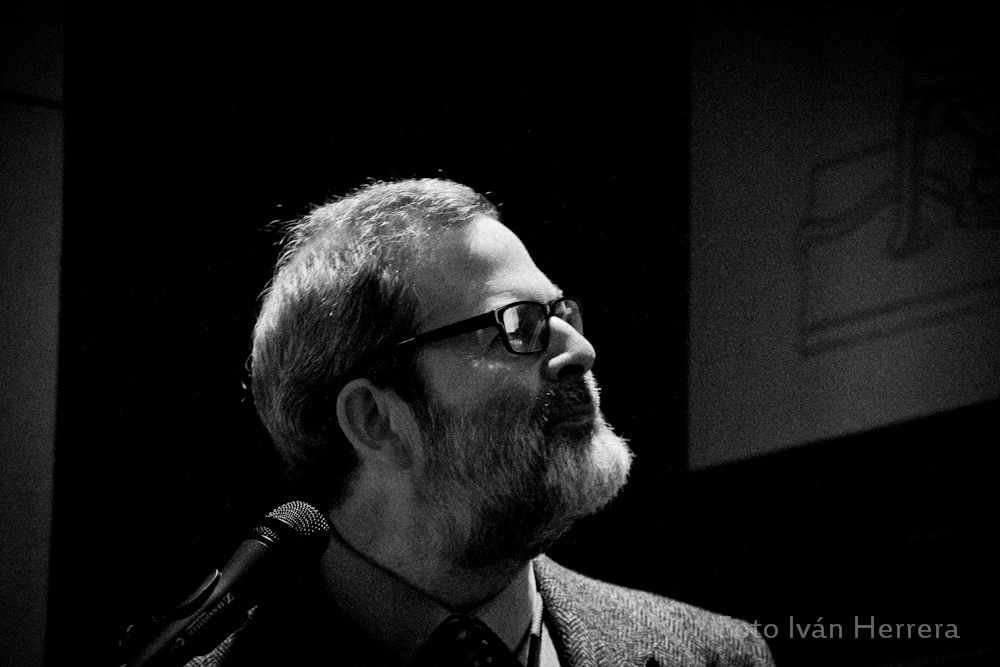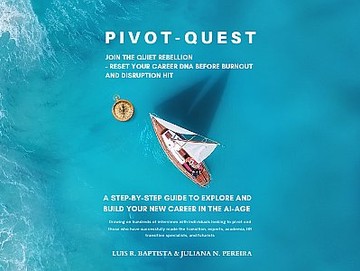Ink In The Blood
GUY: I see that publishing is in your blood, and that you’ve worked in many sides of the industry. What do you love most about the publishing industry?
THAD: I love the retail side of book publishing. Everyone in the publishing industry should spend a few months working in a book store. It gives you a sense of the reader, and the best way to get a sense of readers is to sell books to readers. There is nothing as profound as standing in a physical space with someone asking you, "What can you recommend that’s new in fiction?" That’s more personal than stats and measurements.
The second thing I love is the moment when, as a publisher, the book actually appears. Pre-digital. The moment the book appears physically. You’d open a carton of books: the product of a year's worth of work. It's a very emotional moment to see something called a book come to life. With ebooks, that feeling is somewhat diminished. It's not quite as exciting as the book!
Comprehending The New Dynamics
GUY: So, what frustrates you the most in the publishing industry?
THAD: What frustrates me the most about publishing is the myopia of traditional large publishers. Not only are they myopic, they’re determined to remain so.
When you hear from these folks - and they’re nice, smart people - it's clear that they lack comprehension of the new dynamics of publishing. Their inability to articulate those changes in the industry is disappointing and saddening.
Unfortunately, these folks control a large percentage of the dialogue that takes place in publishing. Because they’re from multi-billion dollar companies, they feel they must be right, but they’re not. The thoughts they express become part of the public's perception of change in the publishing industry.
Watching the same dialogue take place in the self publishing community, I’ve seen it go from defensive to robust. It’s largely independent of the dialogue in traditional publishing. They talk about what matters to them the most, rather than what traditional publishers say.
'De-Booking' Books
GUY: How do you feel self publishing will evolve over the next decade?
THAD: There are a couple of things:
The most powerful shift that will take place in publishing is coming from self publishing. Innovation is taking place from outside the traditional publishing community.
Publishing is shape-shifting. New platforms are shifting away from the book form, now you can have a book-like experience without reading a book. Books In Browsers is a place for people to discover new ideas about innovation. The core idea is taking books outside the book form and using the browser as a way to express content.
In summary, the powerful shift is the 'de-booking’ of publishing, where the form of the book becomes less and less significant.
Another interesting innovation is coming in the way of monetising the interaction with the author. The book becomes the ‘souvenir’ of the publishing experience. There is a larger experience that the author delivers. You get a book, but you’ve already had the experience.
We need to continue to refine curation, communities and review mechanisms. It’s really hard to find your way through the morass. If you go back to the 1960’s, it was largely possible at a practical level to stay up to date with all the important new books that were being published. Vanity publishing was a no-no. All books came from significant commercial publishers, and were promoted through book review mechanisms. There was a control of supply, and a control of the conduits that made books known, such as newspapers and bookstores. That’s been destroyed in a large sense, mostly by Amazon.
Where The Trade Winds Blow
GUY: Major trade publishing houses have also started self publishing imprints (ie: Penguin Random House with Author House, Simon & Schuster with Archway Press, HarperCollins with WestBow Press). Do you see paid publishing growing over the next decade?
THAD: Who cares? I don’t care what large publishers are doing because I don’t think it matters. They're large, but they no longer hold a dominant position and don't control the economic landscape the way they used to. People assume the Big Five control 50% of the industry in North America, but they don’t. It's much smaller than that.
The New Roles of Authorship
GUY: Do you see crowd-funding and/or other models affecting the way books are traditionally published? If so, how?
THAD: At a human level, these platforms are a place for readers to interact with authors who can monetise their work. Crowd-funding is an enabler of the monetisation, but if they don’t have an audience, it’s hard to draw readers in.
It’s a great thing that authors are engaging their online communities, and Publishizer is a great example of that. For their support, the readers are invited to participate in an event organized by the author. It’s a higher priced reward, but the experience is far more profound than something that sells for $19.95.
The primary model of authorship is engaging an audience. Some authors will hide away and write, and still sell tremendously well. Although, that’s becoming increasingly rare. The growing model of authorship has to include community engagement.
We need to think beyond the package of the book, and people need to stop thinking of crowd-funding as a rigid model.
Metadata and Discoverability
GUY: What do you feel will be the most powerful shift in publishing over the next decade?
THAD: As someone who specialises in metadata, I feel discoverability is truly important to the future of publishing. Understand that you won’t be discovered via The New York Times or Oprah, so you’re going to have to get the word out in other ways.
Authors have yet to harness the tools available to become discoverable. GoodReads is important, but metadata is actually far more important. However, it’s also incredibly complicated.
The Author Audit
GUY: Any other insights you’d like to share that you wish more authors would take notice of?
THAD: The first is ‘The Author Audit’. It’s a service I'm going to launch at the Ninc (Novelists, Inc) annual conference. It's for someone who's had several novels published by a traditional publishing house, and must have received an advance payment of at least $2000. The author audit looks at their total output, and tries to bring it back under their control.
The other thing is this: Authors really need to consider their area of expertise and define their presence in both the digital and physical world. A single title will rarely make one a successful author.
Even though many authors are already focused on tools such as creating a website or blog, Facebook and Twitter accounts, and creating an author page on Amazon, they still have no holistic conception of what their author presence really means.
An author needs a mission statement from the beginning. It is not internal, it’s from the outside looking in. After that, the author needs to find and use the tools that are going to make that possible. What are readers going to see when they look in the window? "Oh, she does historical fiction from colonial Australia - with a focus with strong female characters." That’s a focus with strong mission statement.


